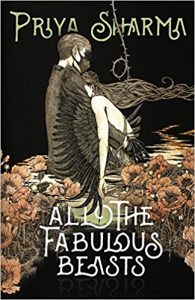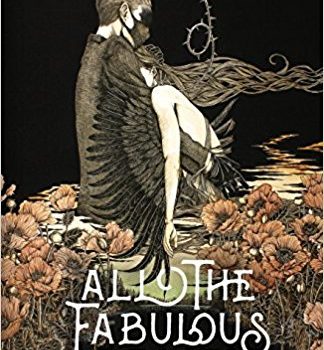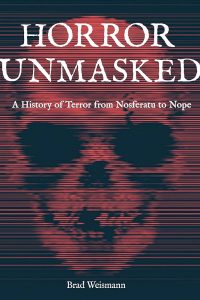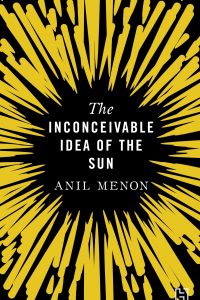Gary K. Wolfe Reviews All the Fabulous Beasts by Priya Sharma
 All the Fabulous Beasts, Priya Sharma (Undertow 978-1-988964-02-7, $17.99, 288pp, tp) May 2018.
All the Fabulous Beasts, Priya Sharma (Undertow 978-1-988964-02-7, $17.99, 288pp, tp) May 2018.
Priya Sharma’s short fiction has mostly appeared in horror or dark fantasy venues, earning her a British Fantasy Award and a Shirley Jackson nomination for “Fabulous Beasts”, one of the strongest stories in her very strong first collection All the Fabulous Beasts. But her relationship to these genres, and to the often folkloric materials that she draws on, is not unlike that of Angela Carter, who certainly seems among her literary ancestors. Like Carter, she often writes of women struggling to discover or create identities, and she seems to be intrigued by finding new angles of approach on familiar themes ranging from changelings, selkies, and gorgons to snake ladies and bird-women – though occasionally she’ll venture into contemporary mythologies such as reality TV, as with the psychic ghost-hunting program that provides the background of “The Show.” She’s also fascinated with anatomy and bodily integrity – not surprising given her day job as a practicing physician – and with unusual and acutely realized settings, such as corporate Hong Kong (“The Absent Shade”), nearly abandoned Irish villages (“The Ballad of Boomtown”), rural Wales (“The Rising Tide”), contemporary Delhi (“The Englishman”), and even a bizarre alternate Victorian Liverpool (“Rag and Bone”), in which the wealthy literally subsist off the bodies of the poor. Finally, there is a recurring preoccupation with families, and with parenting in particular.
This latter theme is especially in evidence in two of the strongest stories here, “The Crow Palace” and “Fabulous Beasts.” In the former, an aspiring business recruiter in London is summoned back to her childhood home after her father’s death. It brings back memories of the “crow table” – the elaborate palace of the title – which her father had built for her and her twin sister Pip, who suffers from cerebral palsy, and it reignites her feelings of guilt at having left Pip behind years earlier, in the care of her father and their neighbor Elsa. As the crows begin to gather again – at one point suggesting a scene from The Birds – Elsa explains their late mother’s belief that the crows had somehow helped her conceive, but then tricked her in a classic changeling scenario. Sharma deftly introduces a key supernatural element that leads to a surprising, and for the narrator, devastating ending. Similar childhood memories haunt “Fabulous Beasts”, in which the narrator Eliza, now a herpetologist, recalls her troubled upbringing by a single mom, with her cousin as her only real protector and a rather ominous uncle whose grim secret is outmatched only by Eliza’s remarkable shapeshifting ability, which evokes the tradition of earlier snake ladies in fiction.
The other most powerful story, “The Rising Tide”, draws on the Welsh legend of the Gwrach y Rhibyn, a witch-like spirit that portends death, but gains a sense of personal immediacy, perhaps because its narrator is a physician plagued by guilt over a possible misdiagnosis of a drowning victim (who later died of “secondary drowning”, which I had to look up). The narrator escapes to her father’s remote house in Wales, but in classic ghost story tradition, it’s far from an actual escape. In terms of narrative structure, the ending of the tale, while powerful, isn’t all that surprising, and this turns out to be a recurring issue in other stories as well. Another tale with a distinctly medical subtext is “The Anatomist’s Mnemonic”, which is the only story I’ve seen about an unnatural fixation with hands, except for Sturgeon’s “Bianca’s Hands”. The narrator of “The Egg” seeks help in getting pregnant from a mysterious hag who gives her an egg to put inside her, and the resulting child eventually transforms into a kind of bird-girl. The protagonist of “The Nature of Bees” rents a cottage from a reclusive family of beekeepers who, it turns out in a rather predictable development, are in need of a new queen.
The injured narrator of “Fish Skins”, a variation on familiar selkie stories, has to make a living as a fishmonger rather than a fisherman, but takes solace in his loving marriage to a wife who isn’t quite what she seems. A mother and daughter face the loss of the father by tending to a sunflower plant he had planted in “The Sunflower Seed Man” until the plant suddenly dies, and a scary vegetative spirit enters their lives. “Pearls”, which is perhaps Sharma’s most effective updating of myth, is narrated by a modern incarnation of Medusa, who recalls her earlier involvements with Poseidon, Perseus, and the Kraken in the context of a contemporary life in which she perpetually feels “out of life and time.” None of these details should come as spoilers to readers who recognize the myths and legends that inform Sharma’s beautifully written tales, which often unwind with a clockwork sense of inevitability that sometimes mitigates against surprises. The strength is less in the plots than in the telling, and Sharma shows herself to be a master in the old art of placing entirely believable, pained, and conflicted characters into versions of the myths that help define their lives. It’s what those myths are for in the first place, isn’t it?
Gary K. Wolfe is Emeritus Professor of Humanities at Roosevelt University and a reviewer for Locus magazine since 1991. His reviews have been collected in Soundings (BSFA Award 2006; Hugo nominee), Bearings (Hugo nominee 2011), and Sightings (2011), and his Evaporating Genres: Essays on Fantastic Literature (Wesleyan) received the Locus Award in 2012. Earlier books include The Known and the Unknown: The Iconography of Science Fiction (Eaton Award, 1981), Harlan Ellison: The Edge of Forever (with Ellen Weil, 2002), and David Lindsay (1982). For the Library of America, he edited American Science Fiction: Nine Classic Novels of the 1950s in 2012, with a similar set for the 1960s forthcoming. He has received the Pilgrim Award from the Science Fiction Research Association, the Distinguished Scholarship Award from the International Association for the Fantastic in the Arts, and a Special World Fantasy Award for criticism. His 24-lecture series How Great Science Fiction Works appeared from The Great Courses in 2016. He has received six Hugo nominations, two for his reviews collections and four for The Coode Street Podcast, which he has co-hosted with Jonathan Strahan for more than 300 episodes. He lives in Chicago.
This review and more like it in the December 2018 issue of Locus.
 While you are here, please take a moment to support Locus with a one-time or recurring donation. We rely on reader donations to keep the magazine and site going, and would like to keep the site paywall free, but WE NEED YOUR FINANCIAL SUPPORT to continue quality coverage of the science fiction and fantasy field.
While you are here, please take a moment to support Locus with a one-time or recurring donation. We rely on reader donations to keep the magazine and site going, and would like to keep the site paywall free, but WE NEED YOUR FINANCIAL SUPPORT to continue quality coverage of the science fiction and fantasy field.







